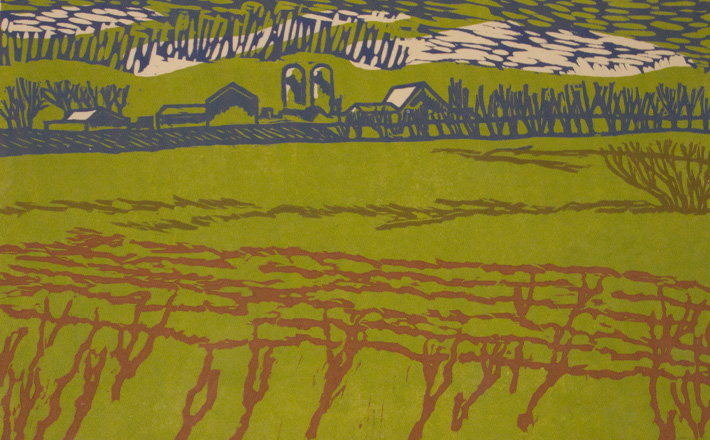Commentary on Hosea 11:1-11
Long before the American sitcom “The Office” launched Steve Carell’s career and the U.K.’s version catapulted Ricky Gervais to fame, there were biblical offices that proscribed one’s identity.
“The Office” hit a nerve with viewers because it displayed how the modern office (workplace) shaped identity.
In biblical times, an office required virtues and behaviors from those who served in that office. We think of the office of the priest, the prophet, or the king; but Hosea 11 speaks to the office of God and the responsibility of human believers.
The chapter contains three movements. The first movement (Hosea 11:1-4) opens with a touching “when Israel was a child.” The first movement exhibits a popular pattern in storytelling that compares and contrasts the past with the present. Sometimes it highlights the continuity. An extended soliloquy of divine pathos opens the chapter. The first movement establishes the two relationships that shape the passage — the parent/child relationship with God and the believer on the one hand, and the Israel-Egypt relationship on the other hand. What marks the continuity is the love of the divine speaker. At the same time the relationship with Egypt also goes back to the childhood of Israel/Ephraim.
The language of God as Father occurs often in the New Testament (see Mark 14:36; Rom 8:15, 16, 21; 9:8) but Hosea 11 is the lodestone for the metaphor God as Father in the Old Testament. The term “my son” occur only Exodus 4:22-23. At the same time the language father-son connects Hosea 11 with Hosea 1-3 where we find the language of husband and wife. At core, the recurring metaphor is Israel as belonging to the household of God.
The verb pair “love” and “call” in verse one sets up the pathos of the chapter. The next verse repeats the verb “call” now associated with affection. The parent, or even an animal trainer, understands this metaphor: the more one calls, the more the child or animal moves in the other direction.
The use of the term “youth” connotes both age as well as a relationship that is subservient or dependent. Youth connects Israel/Ephraim to Gomer, who also came up from the land of Egypt from the days of her youth. (Hosea 2:15) This theme resonates with Jeremiah (2:2) and Ezekiel (16) as well as Hosea 2.
The “called out of Egypt” theme in this first movement points to a troubling reality. The toxic relationships of our youth can and often do persist into adulthood and beyond. The Exodus story describes the crucible of oppression in Egypt. African Americans and European Americans in the United States are inextricably connected through chattel slavery and the racism that built it. White and Black South Africans likewise conjoin in the history of apartheid and its demise. The Holocaust joins together Germans and Jewish people. The Hebrews came out of Egypt and never completely shook off Egypt. The Egyptian Pharaoh Shishak (1 Kings 11-12) played a role in Israelite politics. During the era of Assyrian power some people in Israel thought that Egypt would rescue them from Assyrian power. The same script occurs during the rise of the Babylonian empire. This pattern continues throughout the Persian and Hellenistic periods.
Scholars disagree about whether the training metaphor in verse 4 reflects parental imagery or reining of domesticated animals. The language of cords and bonds fits better with animal training practices. We don’t teach children to walk with cords and bonds. The phrase “cords of human compassion” occurs nowhere else in the Hebrew Bible. Nonetheless if one understands the training of an animal, the “cords of human compassion” intensifies the emotional quality of the training. The story of the poor man and his sheep (2 Sam 12:1-7) depicts an animal that is treated like a human. The first movement connects with the opening of the book of Hosea in that the marital failure of the opening chapters is now matched with the filial failure of chapter 11.
The second movement (Hosea 11:5-7) recounts the punishment of Ephraim. The first movement suggests that Israel/Ephraim sought to return to Egypt. The second movement pronounces that the desired return will not occur. The Israelite King Hoshea appealed to Egypt for help to fend off the Assyrian threat (2 Kings 17:4). Further, the phrase “return to Egypt” elsewhere in Hosea refers to slavery or at least a loss of autonomy, and expresses a desire to return to the repressive empire one knows (Egypt) instead of the repressive empire one does not know (Assyria). The text plays on the word return that can point to either “go back” or “repent.”
The nature of the failure is explicit. The whirling sword razes the city and by so doing devours human plans. This speech makes sense in light of the invasion of Tiglath-Pileser III in 734-732 BCE. Hoshea was put on the throne by the Assyrians displacing the anti-Assyrian Israelite King Pekah.
The third and final movement (Hosea 11:8-11) begins with six clauses of three consecutive pairs of parallel expressions. This movement returns to the soliloquy form that began the chapter. The verbs of relinquishment dominate like give and surrender. Embedded in the passage are references that seem obscure to many contemporary readers with comparison of Admah and Zeboiim were eradicated and incinerated along with Sodom and Gomorrah (Genesis 11:8; 14:2; 19:25-29; Deuteronomy 29:23).
The soliloquy describes the office of God human categories; it also depicts God with the all-too-human experience of pathos in the face of betrayal. God chooses not to workout divine anger on Ephraim based on office: “I am God, not a human being.” To read Hosea 11 as the divine office mandates a type of “cheap grace” of “moral therapeutic deism” that pulls this chapter out of canonical context. Chapter 11 complete the harrowing depiction that began in Hosea 1-3. Nonetheless at the end of the anguish of God and the trials of the once apostate community, God provides us our own home (Hosea 11:11).


July 31, 2016